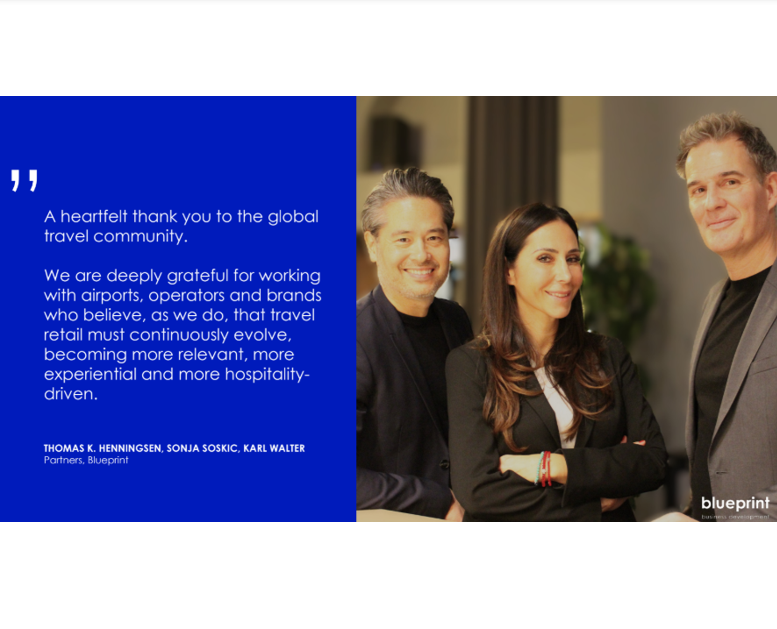September 18, 2025
Millennial business travelers shine as travel retail’s highest spenders
Research agency m1nd-set’s latest research makes a deep dive into the Millennial business traveler shopping behavior in travel retail

New research among global shoppers highlights that Millennial business travelers are the most influential segment today, as travel retail industry’s highest spenders, while revealing a significant decline in spend among Boomers, travel retail’s lowest spending segment.
The latest research, published this week by Swiss-based research agency m1nd-set, makes a deep dive into the Millennial business traveler shopping behavior in travel retail. The research shows that the demographic, aged 29-44, is driving premium sales and provides recommendations on how brands and retailers must engage with these high value consumers.
With an average spend of US$151 per trip, Millennial business travelers far exceed the global average of US$128. Representing nearly 40% of global passengers, their fast-growing share of business travel reinforces their role as the key driver of premium sales. In contrast, the research demonstrates how Boomers have declined sharply, from close to 30% of travelers before COVID to just 9% today, making them the smallest and least influential age segment, spending US$107 on average.
The motivations that draw Millennials into duty free stores differ considerably from those of older shoppers, according to the research. While Boomers are more likely to enter stores to browse, seek promotions, or chase lower prices, Millennials are driven by a quest for new products, higher service quality, broader assortments, and a more engaging store atmosphere. Once inside the store, the research highlights how Millennials are more experience-led and more open to recommendations both from friends and family, as well as from sales staff, while Boomers remain focused on functional drivers such as value, convenience, and suitability for specific purposes.
This divergence is also reflected in purchasing patterns, according to m1nd-set. Millennials dominate premium categories such as Beauty, Fashion and Jewelry and Watches, while Boomers continue to concentrate their spend on Alcohol, Tobacco and Confectionery. Millennials are also more exploratory, trying products for the first time far more than Boomers and demonstrating a stronger appetite for travel retail exclusives.

The research also demonstrates how Millennial business travelers are more price-savvy, using digital tools and comparison channels far more actively than their older counterparts, and they engage more frequently with Duty Free communications prior to travel, especially via social media and inflight touchpoints.
Another key finding highlighted in the research is that Millennial business travelers are significantly more responsive to staff engagement in store.
Dr. Peter Mohn, m1nd-set owner and CEO, said, “A key finding of this research is the importance of staff engagement in influencing Millennial shoppers. Millennials are significantly more open to staff recommendations in store. More than eight out of ten Millennial business travelers who interacted with staff report being positively influenced by staff, compared to just over six out of ten Boomers.”
The research outlines several strategic recommendations to optimize footfall and conversion among the high-spending Millennial business traveler segment. According to m1nd-set, brands and retailers must adapt strategies to meet Millennial expectations. The research recommends that product assortments should focus on premium ranges and exclusives, supported by compelling in-store discovery zones that highlight newness and authenticity, to increase the appeal among Millennial business travelers. Promotions should move beyond generic discounts to emphasize exclusivity.
Given Millennials’ receptivity to pre-travel messaging, omnichannel campaigns, particularly through social media and inflight touchpoints, should be leveraged to build awareness and drive footfall.
Staff training is another critical investment, according to the research. “Millennials are highly responsive to personalized service and product storytelling," Mohn continued. “Therefore, equipping staff to engage proactively, share recommendations, and highlight authenticity can make a significant difference in converting browsers into buyers.”
Despite the significance of the Millennial business traveler, m1nd-set stressed the strategic importance of preparing for the next generation: “While this global analysis reveals the weight of the Millennial business traveler," Mohn said. “Stakeholders must not forget the strategic importance of Gen Z consumers. Millennials dominate spending today, but Gen Zs represent a much larger global population and will become the largest air passenger group by 2028. This generational shift makes it essential for brands and retailers to adapt strategies now.
“With the right blend of exclusivity, memorable experiences, outstanding service, and digital-first strategies, retailers can harness the full spending power of Millennials today, while building loyalty with Gen Zs tomorrow,” he concluded.




